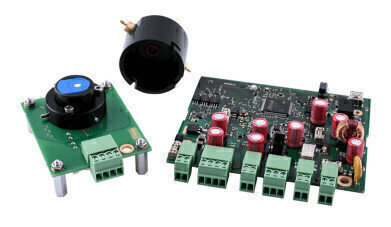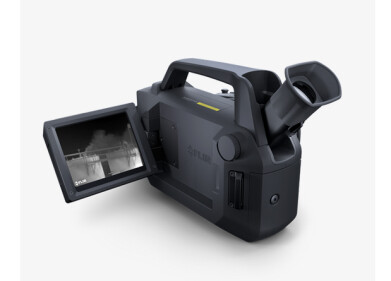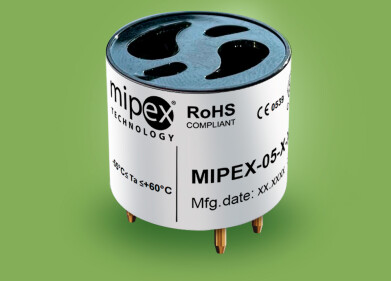Gas Detection
New high performance sensor development kit offers a low cost means of integrating MiniPID sensors into existing systems and applications
Jan 15 2019
Increasing demand from the global heating, ventilation and air conditioning (HVAC), agricultural and general manufacturing industries for measurement of volatile organic compounds (VOCs) has led Ion Science to launch a high performance Sensor Development Kit (SDK).
Comprising integration and sensor printed circuit boards (PCBs), the new Sensor Development Kit facilitates simple, low cost integration of Ion Science’s well proven MiniPID sensors into existing OEM products across a diverse range of applications.
Due to its small size and number of interfaces, the Sensor Development Kit will enable OEMs to easily incorporate the company’s MiniPID technology into their systems and applications that require the sensitivity of photoionisation detectors (PIDs) but without significant investment in engineering and R&D.
A low cost alternative to fixed and portable gas detection systems, the Sensor Development Kit will be supplied ready for immediate integration. This allows engineers who need to measure VOCs as part of air filtration or fume extraction, for example, deliver their solution to market in a shorter time frame. The MiniPID sensor and integration boards handle the intricacies of PIDs reducing the need for design and development.
Coupled with the company’s market leading MiniPID technology, the Sensor Development Kit provides real time, highly accurate data. Plus it offers industry standard protocols and interfaces for seamless connectivity.
The integration board provides data logging as well as flexible 4-20mA input and Modbus RTU output for connection to PLCs, building management systems (BMS) and other equipment for rapid prototyping and product development.
Having been developed for OEMs, the target markets for the Sensor Development Kit are likely to vary greatly. However, there has been growing demand for VOC monitoring from the HVAC industry with BMS manufacturers increasingly likely to integrate it into their systems to check room pollution levels.
In most modern commercial buildings, there are relatively few indoor sources of inorganic gaseous pollutants and the primary indoor generated airborne pollutants affected by ventilation are particles and VOCs.
The existing particle filters in building HVAC systems remove indoor generated particles using far less energy than ventilation. To complement particle filtration, effective and energy efficient air cleaning methods are needed for VOCs.
Recent studies have tested granular activated carbon (GAC) filters for VOC removal in non-industrial buildings and have proposed test methods to evaluate the performance of such air cleaning technologies for reduction in ventilation. Similar to GAC, activated carbon fiber filters (ACF) can be implemented to efficiently remove VOCs from indoor air.
As a result, low power PID sensors giving a continuous reading positioned pre and post filter screen will allow effective break through monitoring, filter replacements and increased ventilation system efficiency.
Duncan Johns, Managing Director at Ion Science comments: “For OEMs and systems integrators, the Ion Science Sensor Development Kit is the simplest, quickest and most flexible way to incorporate VOC monitoring into new and existing gas detection applications.
“They will be able to add PID technology to their systems at a relatively low investment cost. This will reduce their expenditure on development programmes.”
Digital Edition
IET 34.2 March 2024
April 2024
Gas Detection - Biogas batch fermentation system for laboratory use with automatic gas analysis in real time Water/Wastewater - Upcycling sensors for sustainable nature management - Prist...
View all digital editions
Events
Apr 30 2024 Melbourne, Australia
Apr 30 2024 Birmingham, UK
May 03 2024 Seoul, South Korea
May 05 2024 Seville, Spain
May 06 2024 Minneapolis, MN, USA


















